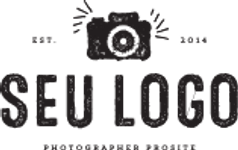Navigating the Complex Landscape of Addiction Treatment Marketing
In a world where millions struggle with addiction, the need for effective treatment facilities has never been more critical. However, the challenge extends beyond just offering excellent care; it involves reaching those who need help most. This is where addiction treatment marketing plays a crucial role. But how can treatment centers market themselves ethically and effectively in such a sensitive and highly regulated field?
Understanding the Landscape
Addiction treatment marketing is not just about promoting a service—it's about connecting with individuals at a vulnerable point in their lives and providing a pathway to recovery. This requires a careful balance of empathy, transparency, and strategic outreach.
Drug rehab SEO helps addiction treatment centers connect with people actively searching for help. By targeting relevant keywords and optimizing website content, rehab facilities can improve their ranking in search results, making them more visible to those in need during a critical moment. This can lead to more website traffic, inquiries, and ultimately, admissions for people seeking recovery
Ethical Considerations
One of the most significant challenges in addiction treatment marketing is maintaining ethical standards. The potential for exploitation in this industry is high, given the desperation of individuals seeking help. Therefore, marketers must adhere to a strict ethical code, which includes:
- Transparency: Be clear about the services offered, the costs involved, and the success rates. Avoid making false promises or exaggerated claims.
- Privacy: Respect the confidentiality of all individuals seeking information or treatment. Ensure that marketing practices comply with laws such as HIPAA in the United States.
- Sensitivity: Use language and imagery that are respectful and non-stigmatizing. Understand that potential clients are in a vulnerable state and should be approached with care and compassion.
Key Marketing Strategies
- Content Marketing: Providing valuable, informative content can help build trust and establish a center as a thought leader in the field. Blog posts, eBooks, and videos on topics like understanding addiction, treatment options, and recovery stories can attract and engage an audience.
- Search Engine Optimization (SEO): Optimizing content for search engines ensures that those searching for help can easily find your facility. Use keywords related to addiction treatment, recovery, and specific services offered.
- Pay-Per-Click (PPC) Advertising: Targeted ads can reach individuals searching for immediate help. Ensure that ads are informative and lead to a landing page that offers clear and concise information about your services.
- Social Media Engagement: Social platforms offer a space to connect with individuals and their families, share success stories, and provide support. It's also a way to humanize your brand and show the compassionate side of your services.
- Partnerships and Referrals: Building relationships with healthcare providers, therapists, and community organizations can lead to referral networks. Trusted recommendations are invaluable in the addiction treatment field.
- Accreditation and Testimonials: Highlighting accreditations from reputable organizations and sharing testimonials from former patients can build credibility and trust.
Challenges and Opportunities
Marketing addiction treatment services comes with its unique set of challenges:
- Regulatory Compliance: Adhering to laws and regulations regarding healthcare advertising is paramount. Non-compliance can lead to severe penalties and damage to reputation.
- Stigma: Overcoming the stigma associated with addiction requires thoughtful and positive messaging.
- Differentiation: With many treatment centers offering similar services, standing out requires a unique value proposition and clear communication of what sets your facility apart.
However, these challenges also present opportunities. By focusing on ethical practices, transparent communication, and compassionate outreach, treatment centers can build a strong, trustworthy brand.
Conclusion
Addiction treatment marketing is a vital component in the battle against addiction. It requires a nuanced approach that balances ethical considerations with effective strategies to reach those in need. By prioritizing transparency, empathy, and respect, treatment centers can successfully connect with individuals and guide them towards a path of recovery. The ultimate goal is not just to attract clients, but to make a positive impact on their lives and the broader community




